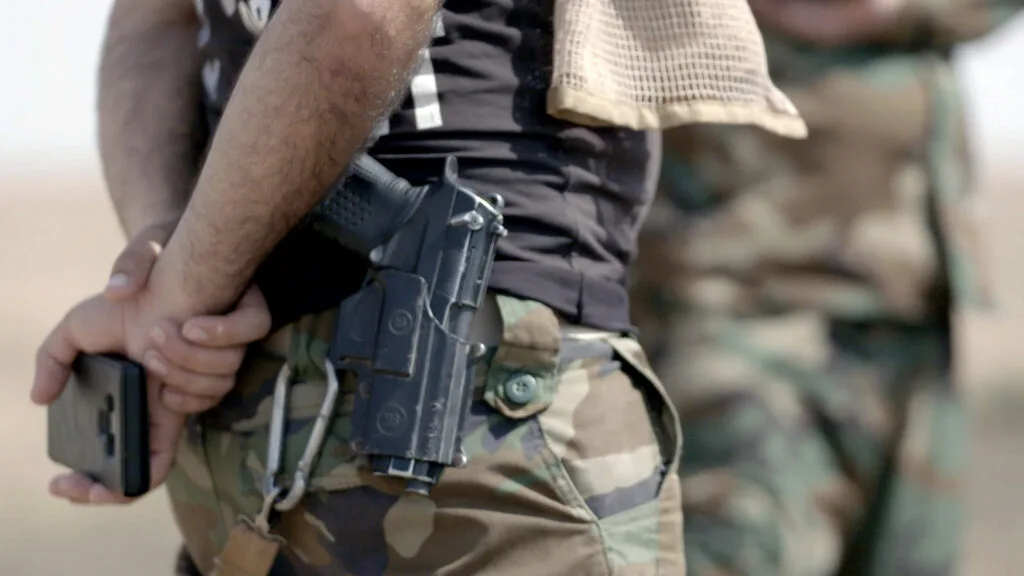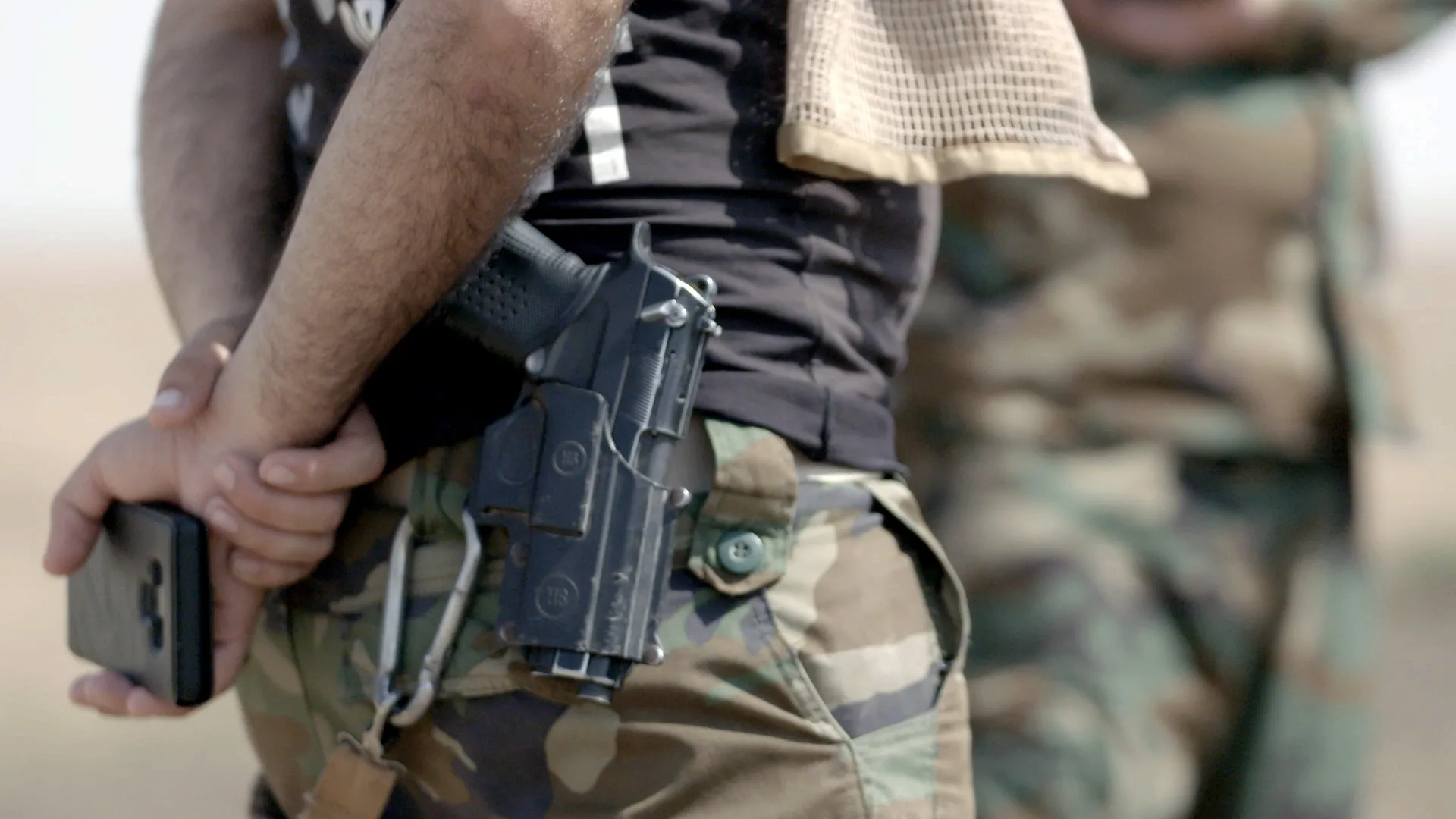U.S. Strikes Iran-Backed Militias in Syria, Responding to Rocket Attacks

February 26, 2021
Share
The United States carried out airstrikes in Syria on Thursday evening, targeting what it said were facilities used by Iranian-backed militias, in response to recent attacks on U.S. and coalition forces in Iraq, according to Pentagon Press Secretary John Kirby.
The U.S. strikes destroyed facilities located near the border between Syria and Iraq that are used by a number of Iranian-backed militias, Kirby said, including Kata’ib Sayyid al-Shuhada and Kata’ib Hezbollah. The latter militia figures heavily in the FRONTLINE documentary Iraq’s Assassins, which premiered earlier this month.
A U.S. official told CNN a “handful” of militants were killed in Thursday’s operation.
Kirby said the strikes were meant to send a message that President Joe Biden would act to protect U.S. and coalition forces, and that the U.S. “acted in a deliberate manner that aims to de-escalate the overall situation in both eastern Syria and Iraq.”
On February 15, a rocket attack on a U.S.-led military base in northern Iraq killed a civilian contractor and wounded several others, including a U.S. service member. A little-known Shia militia called Guardian of the Blood Brigade claimed responsibility for that attack, although some American officials say the group is a front for another, better-known militia, according to The New York Times.
Two other rocket attacks followed the February 15 attack, targeting an air base where a U.S. defense company provides support to Iraqi forces, as well as the U.S. Embassy in Baghdad, Iraq’s capital. After those attacks, White House Press Secretary Jen Psaki said on Tuesday, “We do hold Iran accountable for the actions of their proxies,” and, “we will respond in a way that’s calculated, on our timetable, and using a mix of tools seen and unseen.”
On Thursday, Defense Secretary Lloyd Austin told reporters, “We’re confident that the target [of the U.S. airstrikes] was being used by the same Shia militia that conducted the strikes.”
“We allowed and encouraged the Iraqis to investigate and develop intelligence for us, and that was very helpful to us in refining the target,” Austin said.
In a statement, Kata’ib Hezbollah said one of its fighters was killed in Thursday evening’s strike and called it a “barbaric aggression” and a “heinous crime in violation of international law,” according to Agence France Presse. Syria’s foreign ministry said the strike was a “bad sign” of the Biden administration’s policies, calling it a “cowardly American aggression.”
In the documentary Iraq’s Assassins, correspondent Ramita Navai investigated allegations that Iran-backed Shia militias have targeted U.S. interests in Iraq and have threatened and killed critics with impunity. In the film, she notes how tensions between the U.S. and these Iran-backed militias worsened after the U.S. carried out a drone strike in Iraq in January 2020 that killed a powerful Iranian military leader, Qassem Soleimani, and the founder of Kata’ib Hezbollah, Abu Mahdi al-Muhandis.
Ramita Navai and Mais Al-Bayaa contributed to this story.
Watch Iraq’s Assassins in its entirety below and find hundreds more documentaries in FRONTLINE’s online collection of streaming films, on YouTube and in the PBS Video App.

Related Documentaries
Latest Documentaries
Related Stories
Related Stories
Explore
Policies
Teacher Center
Funding for FRONTLINE is provided through the support of PBS viewers and by the Corporation for Public Broadcasting, with major support from Ford Foundation. Additional funding is provided the Abrams Foundation, Park Foundation, John D. and Catherine T. MacArthur Foundation, Heising-Simons Foundation, and the FRONTLINE Trust, with major support from Jon and Jo Ann Hagler on behalf of the Jon L. Hagler Foundation, and additional support from Koo and Patricia Yuen. FRONTLINE is a registered trademark of WGBH Educational Foundation. Web Site Copyright ©1995-2025 WGBH Educational Foundation. PBS is a 501(c)(3) not-for-profit organization.























